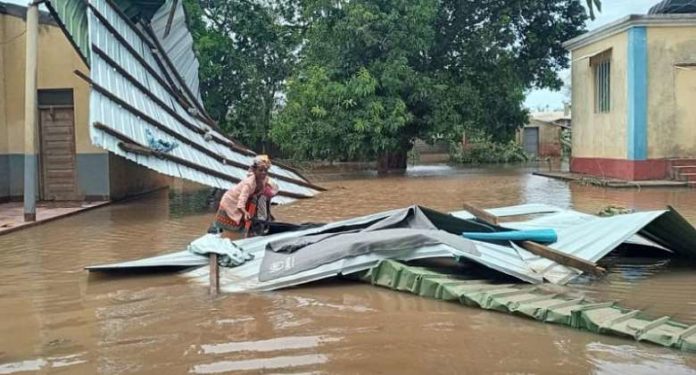Geneva – A record 59.1 million people were internally displaced in 2021 according to the newly released International Displacement Monitoring Centre (IDMC)’s Global Report on Internal Displacement (GRID). This is an additional 4 million people living in displacement at the end of 2021 compared to the same period in 2020.
For the last 15 years, disasters have triggered most internal displacement, with annual numbers significantly higher than those related to conflict and violence. 2021 was no exception – 23.7 million internal displacements, mainly in Asia-Pacific, and resulting from weather-related events including floods, storms and cyclones. With the expected impacts of climate change and without ambitious climate action, the numbers will likely increase in the coming years.
Conflict and violence have triggered 14.4 million internal displacements in 2021, an increase of almost 50 per cent compared with the previous year. The majority of internal displacements took place in Africa, particularly in Ethiopia and Democratic Republic of the Congo, with the violence and conflict in Afghanistan and Myanmar also displacing unprecedented numbers of people.
This year’s report includes a special focus on children and youth in internal displacement, who account for more than 40 per cent of the total number of internally displaced persons in 2021. The report explores the impacts of internal displacement on their well-being and their future and fills data and knowledge gaps that are key to finding durable solutions that address risks and impacts of displacement on children and youth today and in the future, and ultimately contribute to build more resilient and sustainable societies.
Gaps in how we understand and address internal displacement in conflict and disaster contexts remain. The International Organization for Migration (IOM) is proud to partner with IDMC and to provide reliable and accurate data through its Displacement Tracking Matrix (DTM), the world’s largest source of primary data on internal displacement. Building on a long-standing relationship, IOM and IDMC signed a Global Partnership in 2018 to join forces in improving data and to accelerate policymaking and action on internal displacement. Since 2020, IOM also co-chairs the International Data Alliance for Children on the Move (IDAC), a coalition of governments, international and regional organizations, NGOs, think tanks, academics, and civil society aiming to improve statistics and data on migrant and forcibly displaced children. Understanding, managing, and adapting to human mobility trends is crucial to ensure humanitarian assistance and essential services are reaching people where they are most needed.
IOM welcomes the newly released IDMC’s GRID report as a valuable tool for the organization and other humanitarian partners and governments in their responses to evolving needs of communities affected by crises around the world.
